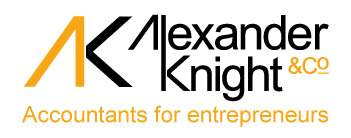Making tax digital (again!)
In July 2017, the government announced significant changes to the timetable and scope of HMRC’s digital tax programme for businesses. VAT will be the first tax where taxpayers will keep digital records and report digitally to HMRC.
The new rules will apply from April 2019 to all VAT registered businesses with turnover above the VAT threshold.
As with electronic VAT filing at present, there will be some exemptions from Making Tax Digital for VAT. However, the exemption categories are tightly-drawn and unlikely to be applicable to the generality of VAT registered businesses.
Keeping digital records will not mean businesses are mandated to use digital invoices and receipts but the actual recording of supplies made and received must be digital. It is likely that third party commercial software will be required. Software will not be available from HMRC. The use of spreadsheets will be allowed, but they will have to be combined with add-on software to meet HMRC’s requirements. In the long run, HMRC are still looking to a scenario where income tax updates are made quarterly and digitally, and this is really what the VAT provisions anticipate.

